Synopsis
Why does the U.S. have an Electoral College? How do congressional investigations work? What does the minority whip actually do? Civics 101 is the podcast refresher course on the basics of how our democracy works.
Episodes
-
Episode 77: U.S. Postal Service
28/11/2017 Duration: 15minOne of the founding institutions of America's government is also one of the most overlooked and surprising ones: the Postal Service. What role did it play in shaping the early, disparate colonies into a unified nation? How has it survived the digital age? And what's its future going forward? Our guest is Winifred Gallagher, writer and author of How the Post Office Created America.
-
IRL 1 - Free Speech in Schools
24/11/2017 Duration: 26minThis is the first in a series called Civics 101 IRL; special episodes where we explore the historic moments connected to our regular podcast topics. Today we're digging into four incredibly important Supreme Court cases - four cases that have shaped how we interpret the meaning of free speech in public schools. Is political protest allowed in class? Is lewd speech covered by the First Amendment? Can school administrators determine what students can and can't say in the school newspaper? Listen in, and find out how students and schools have gone head to head over how First Amendment rights apply in a public school setting. CORRECTION: A previous version of this episode inaccurately stated that Justice Abe Fortas was Chief Justice. While Fortas wrote the Tinker decision, Earl Warren was the Chief Justice at the time.
-
Episode 76: Native American Reservations
21/11/2017 Duration: 19minOn this episode: What is a Native American reservation? What is a pueblo? What does it mean to be a sovereign nation? What is the relationship between reservations and the federal government? Can reservations pass laws that run up against state or federal statutes? How are, and were, reservations created? What does the Bureau of Indian Affairs actually do? Our guest is Maurice Crandall, assistant professor of Native American Studies at Dartmouth, and a citizen of the Yavapai-Apache Nation of Camp Verde.
-
Episode 75: White House Staffers
17/11/2017 Duration: 14minIn this episode: What do White House staffers actually do, what are the rules constraining them, and how have the day-to-day staffing demands of the White House changed over the years? Our guest is Karen Hult, Chair of the Department of Political Science at Virginia Tech.
-
Episode 74: Unions
14/11/2017 Duration: 16minIn this episode: What is a union? How are unions formed? What are the benefits and costs of labor unions, for both workers and business? What is the history of unions in America, and what might unions look like in the future? Our guest is David Zonderman, author of Uneasy Allies: Working For Labor Reform in Nineteenth-Century Boston.
-
Episode 73: The Vice President
10/11/2017 Duration: 17minThe vice president is said to be just a heartbeat away from Commander-in-Chief. But what does the VEEP actually do? How significant a role does the vice president play in the White House... and with the president? And what kind of effect can a running mate have on a presidential election? To find out, we talked to one of the foremost experts on the Vice Presidency, St. Louis University law professor Joel Goldstein.
-
Episode 72: The 2nd Amendment
07/11/2017 Duration: 16minOn today's episode: The Second Amendment. For ages, the right to bear arms was among the least controversial amendments in the U.S. Constitution. Today, it's among the most divisive issues in American politics. What were the Founders hoping to achieve in ratifying The Second Amendment? When did the U.S. start regulating guns? What qualifies as arms? We'll seek out constitutional consensus on a topic where common ground is hard to find. Our guest is Jeffrey Rosen, CEO and President of the National Constitution Center, and host of We the People.
-
Episode 71: The Secret Service
03/11/2017 Duration: 17minYou've heard of the Secret Service and you've probably even seen them in action - observing stoically behind a dark suit and sunglasses. But what exactly do they do? How does someone become an agent? And how are they fairing with the demands of a Trump presidency? Today we get a behind-the-scenes breakdown of the agency from New York Times Reporter Nicholas Fandos who's been covering the service's inner-workings.
-
Episode 70: The 1st Amendment - Freedom of the Press
31/10/2017 Duration: 16minOn today's episode: We continue our investigation of the First Amendment with a conversation about the freedom of the press. What does this freedom guarantee publishers and journalists? Why did the Framers include it in the Constitution? And what does it mean in the era of digital media? We address these questions and more with Elizabeth Skewes, Department Chair of Journalism at the University of Colorado Boulder College of Media, Communication and Information.
-
Episode 69: The Federalist Papers
27/10/2017 Duration: 17minOn this episode: What are the Federalist Papers? Who wrote them? Who uses them? And why should you read them? Michael Gerhardt, professor from UNC and scholar-in-residence at the National Constitution Center, not only explains these invaluable documents to us, he breaks down some of the more notable essays.
-
Episode 68: Populism
24/10/2017 Duration: 13minOn this episode: what is Populism? How can you identify a Populist candidate? What's its role inside of a democracy and what are some historical outcomes of populist movements? Our guest is Jan-Werner Mueller, professor of politics at Princeton University and author of What is Populism?
-
Episode 67: The 1st Amendment - Freedom of Assembly
20/10/2017 Duration: 17minOn today's episode: a closer look at one of the freedoms guaranteed in the First Amendment: the freedom of assembly. What is it? Is our freedom of assembly tied to other First Amendment rights, or does it stand alone? Are there limits to where and when this freedom can be exercised? How are 'assemblies' defined in the digital age? Our guest is John Inazu, author of Liberty's Refuge: The Forgotten Freedom of Assembly,
-
Episode 66: The EPA
17/10/2017 Duration: 17minIn the 1960’s, the American public looked around at the environment—polluted rivers, smoggy skies—and decided something needed to be done. By 1970, the blooming environmental movement had an official voice in the government: the Environmental Protection Agency. But what can the agency actually do, and how has its job changed with our changing environmental challenges? Guiding us through the brief, eventful history of EPA is Stan Meiburg, former Acting Deputy Administrator of EPA under Obama.
-
Episode 65: The Secretary of Education
13/10/2017 Duration: 16minHead of the Department of Education and a cabinet member with the ear of the President... but how much power does the Secretary of education really have? Can he or she influence policy? How much say does the Secretary have in the way we teach our kids? Our guest is Jessica Kendorski, Associate Professor and Director of Professional Education in School Psychology at the Philadelphia College of Osteopathic Medicine.
-
Episode 64: The Nuclear Codes [Rebroadcast]
10/10/2017 Duration: 13minIn this episode: What exactly does it mean when we say the President has "the nuclear codes”? Is it really as simple as pressing a button? And what happens after a president does order a nuclear strike? Retired Marine lieutenant colonel James W. Weirick, host of the podcast Military Justice, explains.
-
Episode 63: The CDC
06/10/2017 Duration: 15minIn this episode: What exactly does the CDC - The Centers for Disease Control and Prevention - actually do? Could it really stave off a zombie outbreak? And who are the 'Disease Detectives' and what's their role inside the CDC? Our guest is Wendy Parmet, professor of law, public policy and urban affairs at Northeastern University.For more on the CDC, check out their all of their podcastsFind the Panoply survey here: survey.panoply.fm
-
Episode 62: The Debt Ceiling
03/10/2017 Duration: 16minEvery so often, while our national debt ratchets upward, politicians threaten to refuse to raise the upper limit on that debt. But does the debt ceiling actually curb the government's borrowing, and what would happen if Congress didn't raise it? Our guide to these questions is Michael Dorf, law professor at Cornell University. To fill out the Panoply survey, visit survey.panoply.fm
-
Episode 61: The Attorney General
29/09/2017 Duration: 18minWe're zooming in on the highest legal officer in the country and asking who, exactly, the Attorney General represents. If the AG is a member of the Executive Branch, does that make him the President's lawyer? And what happens when the U.S. government goes to court? Our guest is David Yalof, professor of Political Science at the University of Connecticut.
-
Episode 60: Federalism
26/09/2017 Duration: 17minOn this episode: what is Federalism? Who uses it? Why do we separate our powers between the states and the national government, and what are the benefits and challenges of such a system? Our guest is John Dinan, professor at Wake Forest University and editor of Publius, the Journal of Federalism.
-
Episode 59: The Census
22/09/2017 Duration: 13minIn this episode: What is the census, and why does it matter? How is it conducted? How are difficult to reach populations counted? What kind of questions are asked, and how are they determined? Our guest is Joseph Salvo, director of the population division at the New York City Planning Department.For more on the census, check out the segment "Save Our Census" from On The Media, and this episode from the podcast Code Switch.

Join Now
- Unlimited access to all content on the platform.
- More than 30 thousand titles, including audiobooks, ebooks, podcasts, series and documentaries.
- Narration of audiobooks by professionals, including actors, announcers and even the authors themselves.


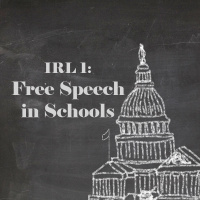
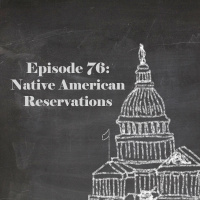
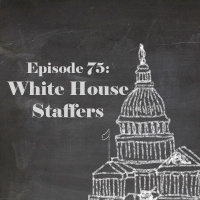
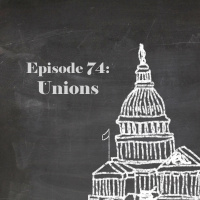
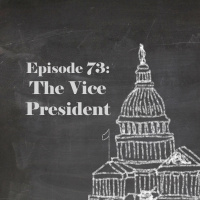

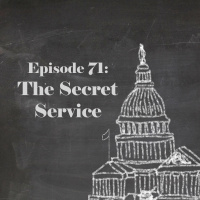
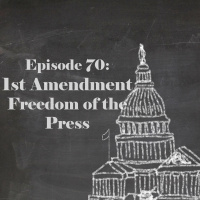
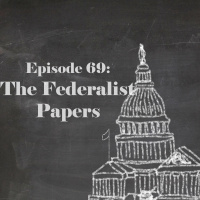
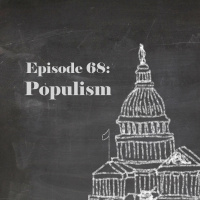
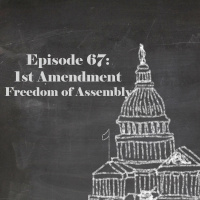

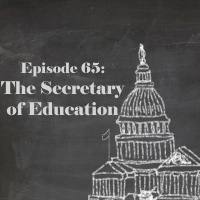
![Episode 64: The Nuclear Codes [Rebroadcast]](http://media3.ubook.com/catalog/book-cover-image/287506/200x200/36D3118D-6E5D-4498-7CA4-BE7583158353.jpg)
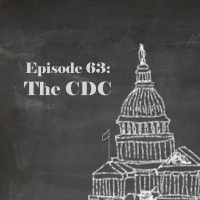
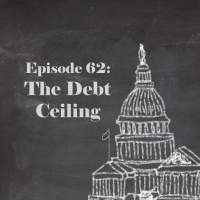
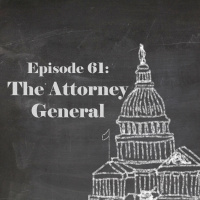
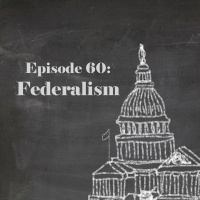
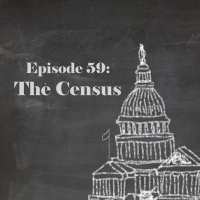










 Jamaica
Jamaica





